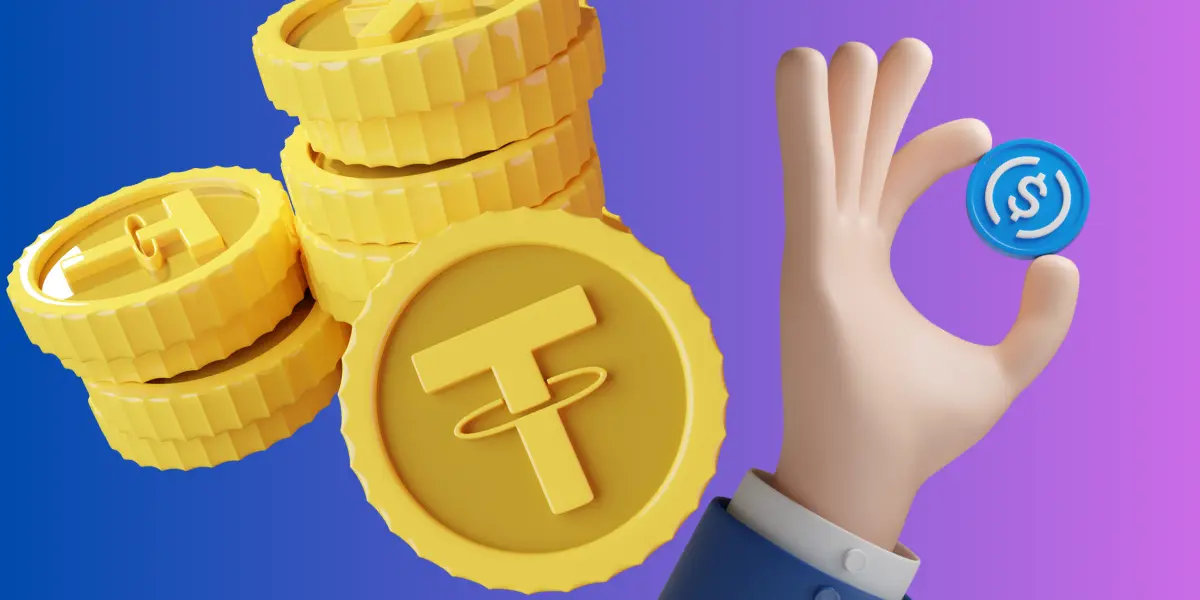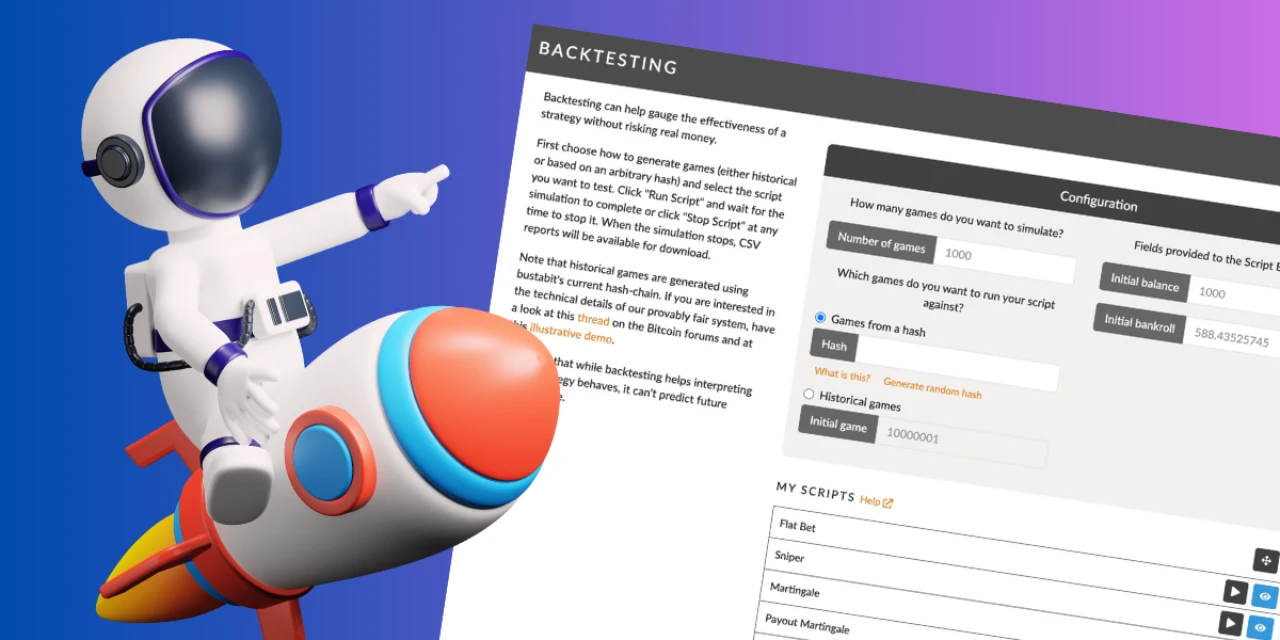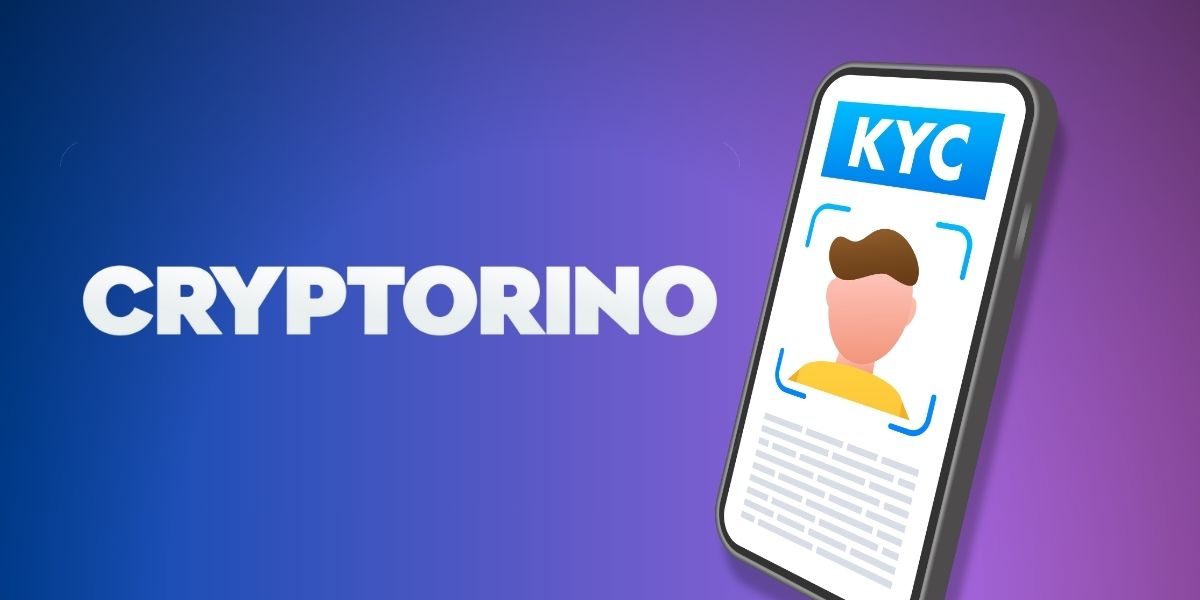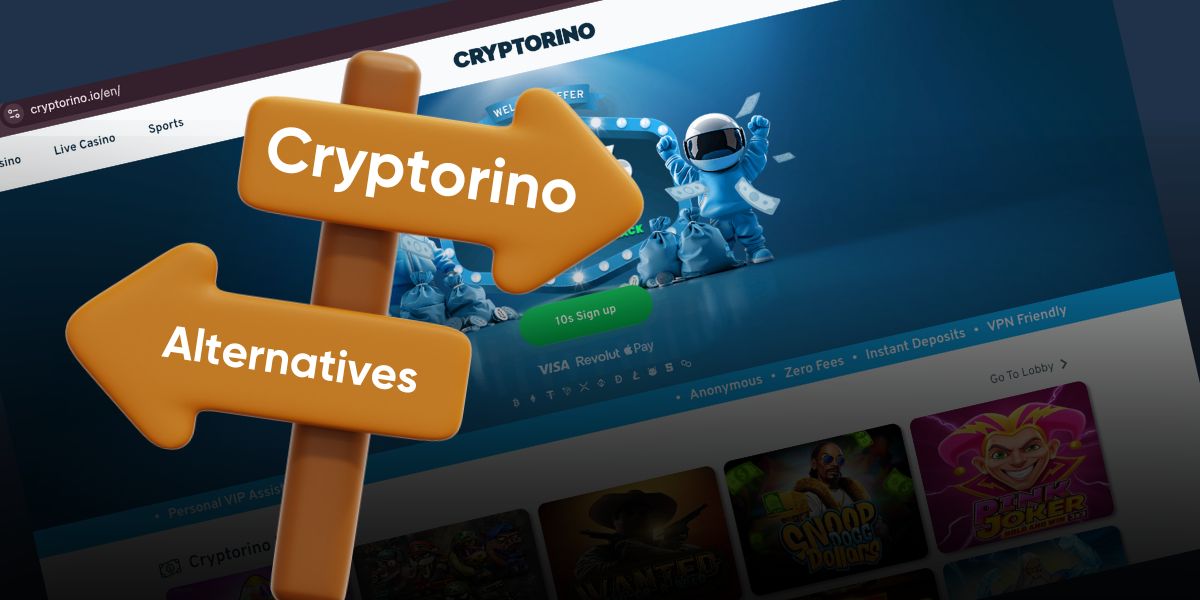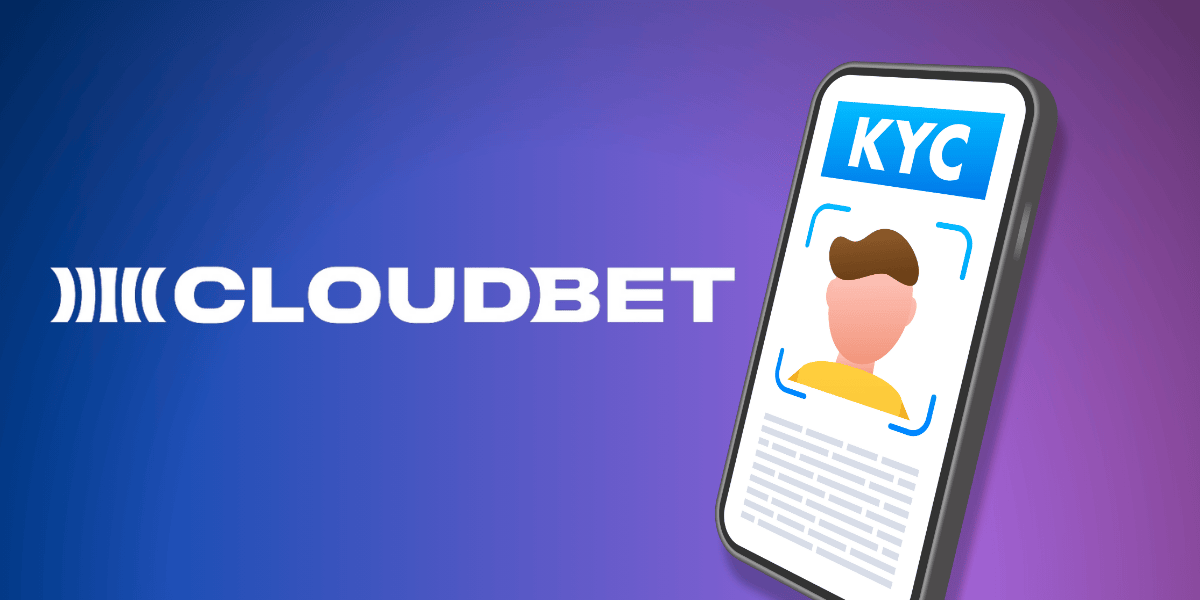
How to pass Cloudbet KYC in 2026?
I’ve tested enough crypto casinos to know that “no KYC” can mean very different things in practice. Cloudbet seems to be a good option for players who want a bit of anonymity – at least up to a point.
But what’s the reality behind their daily withdrawal limit and ID checks?
In this guide, I’ll walk you through the Cloudbet KYC policy in 2026: when you can withdraw without verification, what triggers account checks, and whether you can truly bypass identity requirements.
🔑 Key Takeaways
- Unverified Cloudbet accounts have a daily withdrawal limit of $2,200.
- Full verification removes limits entirely, but you’ll need to submit ID documents.
- No KYC is required at sign-up, so you can open an account and deposit crypto instantly.
- Cloudbet may request KYC documents at any time if your withdrawal pattern spikes or if they suspect suspicious activity.
- Refusing to comply can lead to frozen withdrawals or account closure.
CloudBet KYC: Is it a thing?
Cloudbet has been around for more than a decade, and it’s built up a solid reputation in the crypto gambling community.
On paper, Cloudbet doesn’t require any verification when you first register – you can sign up with just an email and password, deposit your preferred cryptocurrency, and dive straight into the fun.
In that sense, it does feel “no-KYC.” You can even withdraw your winnings to a personal crypto wallet without providing documents – as long as you’re not going beyond the unverified account threshold.
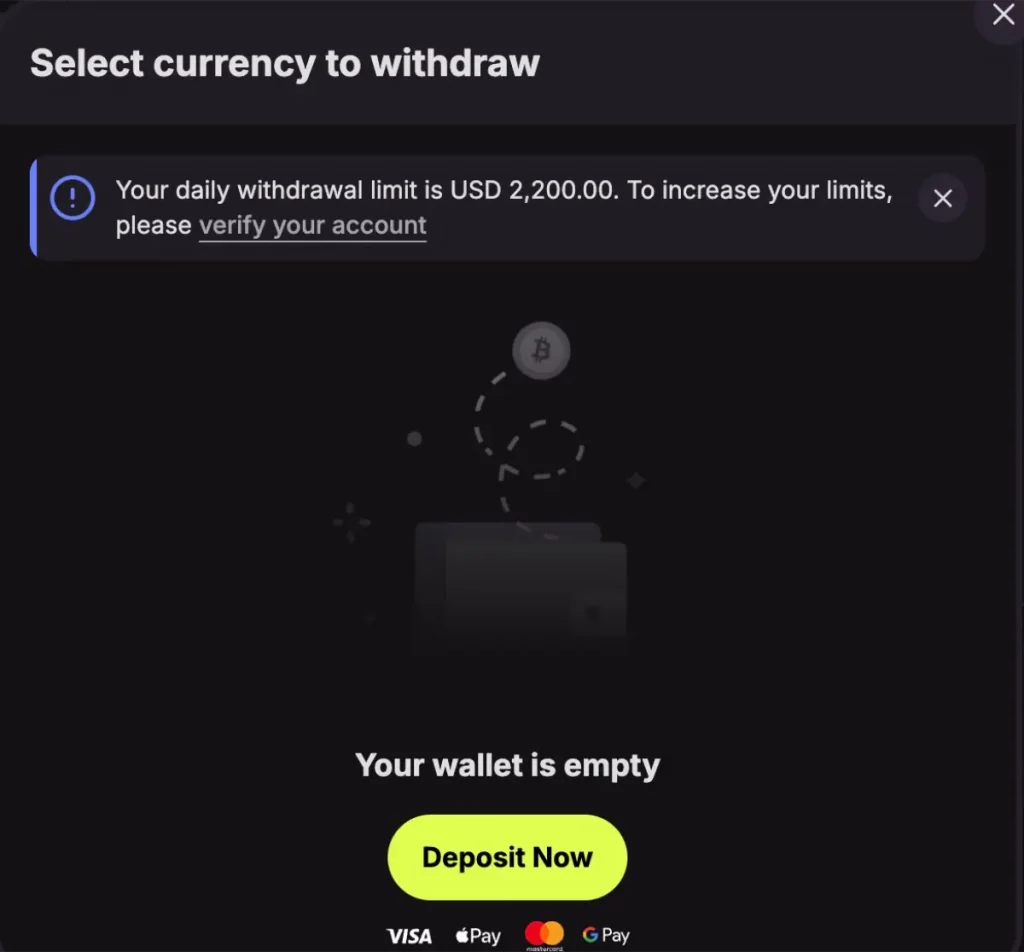
But that threshold is a strict daily limit of $2,200, as Cloudbet’s interface reminds you once you try to withdraw.
Now, maybe you’re thinking, “$2,200 isn’t so bad.” And yes, for casual play, that’s often plenty.
At that point, you may run into Cloudbet’s standard ID checks.
That includes uploading a government-issued ID, a proof of address, and possibly even a bank statement or utility bill if they need extra confirmation.
It’s not forced from day one – but it is there in the fine print.
But it’s better than Shuffle’s KYC and many other casinos like Shuffle that require you to provide information, even basic, before playing.
Cloudbet verification levels
Cloudbet doesn’t lay out a tiered KYC structure like Stake or Roobet, but from my testing (and confirmation via live chat), you can think of it as a two-level system.
It’s not labeled this way on the site, but the differences in access and withdrawal limits clearly show two stages of account status: Unverified and Fully Verified.
Unverified account
You can get started and even withdraw crypto without uploading any documents. That’s a huge plus for privacy-first players or casual bettors who aren’t moving large amounts of money.
So, while there are no forced KYC requirements at sign-up, your experience depends heavily on how much you plan to withdraw.
It’s similar to Betpanda’s KYC. Considering the $66,000 limit on a monthly basis without the KYC check, I’d say it’s more than fair enough.
Fully verified account
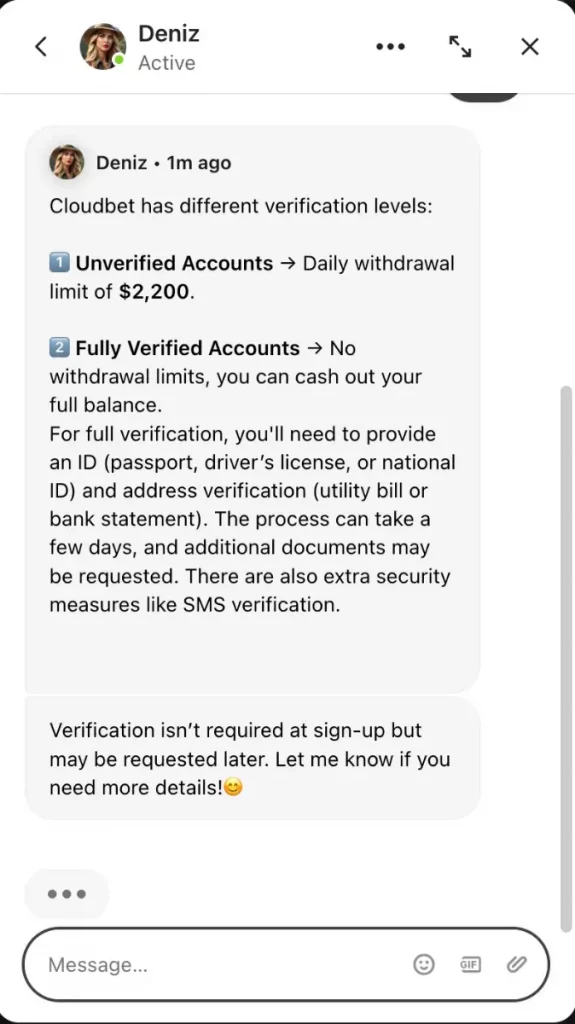
Cloudbet doesn’t explicitly list “Verification Level 1, 2, 3, 4” in your account dashboard (unlike Stake), but the full verification requires you to provide:
- Government-issued photo ID (passport, driver’s license, or national ID)
- Proof of address (utility bill or bank statement dated within the last 3–6 months)
- A selfie with your ID or a verification note with today’s date
The verification process can take a few days, depending on document quality and queue size.
There is an in-between verification with a mobile number to unlock higher limits, but it still won’t let you fully utilize the benefits of being part of a no-limit casino like Cloudbet.
How can Cloudbet trigger a KYC check?
There’s no official magic number posted (besides that $2,200 daily limit). But these are the typical situations where Cloudbet might step in and demand your documents:
- Large Withdrawals: If you try to withdraw an amount that exceeds $2,200 in a day, you’ll have to verify. This is the biggest and most obvious trigger.
- Frequent Transactions: Rapid deposits and withdrawals can look like money laundering. If Cloudbet detects this pattern, they can freeze your account until you complete KYC.
- Multiple Accounts / Linked Accounts: If they suspect you of using multiple Cloudbet accounts to circumvent any promotional or deposit limits, you’ll face a verification request.
- Suspicious Activity: Any unusual login patterns or sudden changes in your betting behavior can flag their systems, leading to KYC.
Basically, if you’re playing consistently small, Cloudbet’s probably never going to bother you.
But if you’re preparing to cash out a big win or deposit large sums, you’ll almost certainly be asked to verify.
What documents might Cloudbet ask for?
When your account is flagged for full verification, Cloudbet can request:
- A valid government-issued ID. This could be a passport, driver’s license, or national ID card.
- Proof of address. Typically a utility bill or bank statement, dated within the last six months, showing the address you used when signing up.
- Selfie with your documents. In some cases, they may want to see a photo of you holding your ID and a piece of paper with the current date, to confirm you’re the actual owner.
- Proof of funds. Less common, but if you’re withdrawing really high amounts, Cloudbet might want to see bank statements or employment records indicating your gambling bankroll is legitimate.
They usually provide instructions on how to submit these documents (through a secure upload portal or via email). The verification can take anywhere from a few hours to a few days. My personal advice? Submit clear, high-quality scans or photos, or you risk a back-and-forth that prolongs the process.
Is there a way to bypass Cloudbet KYC?
I’ve seen people on forums asking if using a VPN or registering a burner email is the golden ticket. But I’d caution against that.
VPN usage on its own doesn’t inherently remove the daily withdrawal limit.
And if Cloudbet’s system tags suspicious behavior, like rapid wallet switching or repeated high-value deposits from questionable sources, you’ll be flagged anyway.
Fake docs or stolen IDs? Please don’t try it. That’s fraud, and Cloudbet’s verification process is designed to spot mismatched details, so you’d just lose your funds and your account.
The best approach is to accept that once you exceed $2,200 a day, you’ll be going through a standard ID check – just like at most reputable crypto casinos.
If total privacy is your top priority, keep your withdrawal amounts small or play at casinos without verification.
Final words
If you’re sticking to smaller withdrawals, you can use Cloudbet without ever touching KYC – I’ve done it myself. But once you hit that $2,200/day cap or do anything that looks even slightly off, Cloudbet will ask for ID.
Fair enough, really. It’s one of the more relaxed setups I’ve seen, and as long as you know where the line is, it’s easy to stay on the right side of it.

